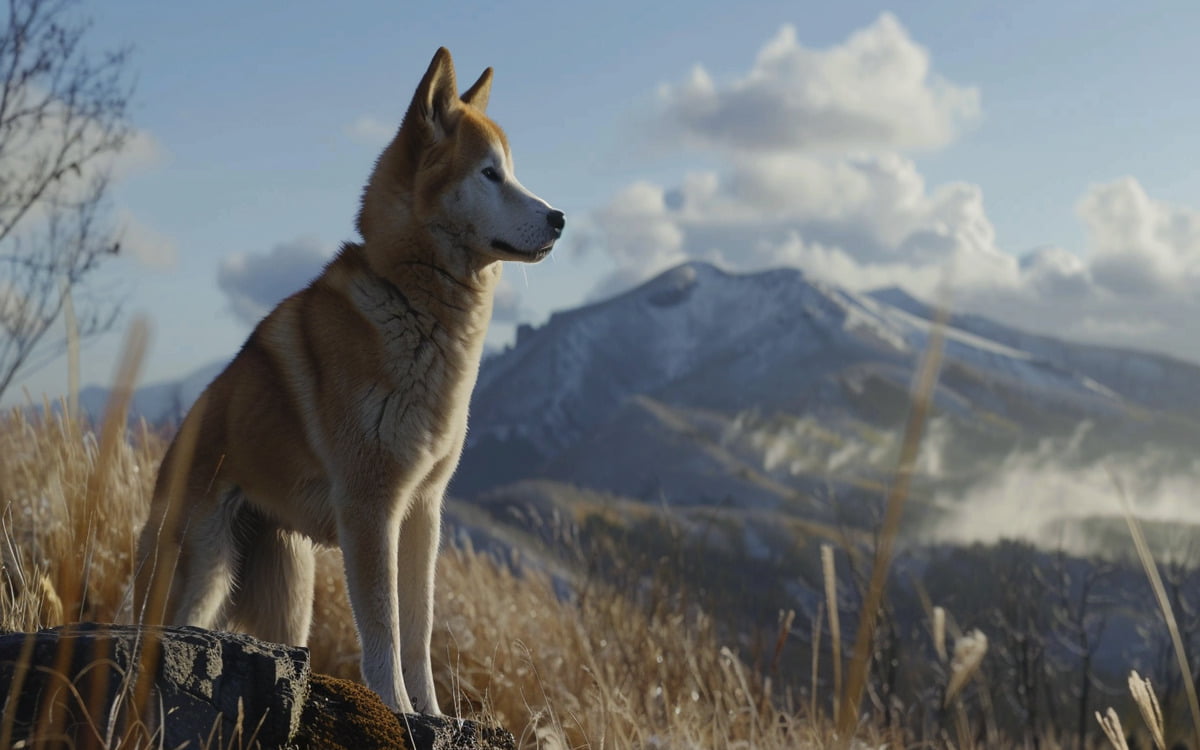If the canine world were a tapestry, the Shikoku dog would be one of its most unique and captivating threads. Hailing from the rugged mountains of Japan’s Shikoku Island, this breed is a living testament to ancient traditions and the untamed spirit of the wild. With a striking wolf-like appearance, piercing eyes that seem to hold centuries of wisdom. And a loyalty that runs as deep as the island’s valleys, the Shikoku is not just a dog, it’s an experience.
Though relatively rare, even in their homeland, Shikoku dogs are gaining recognition for their unwavering loyalty, boundless energy, and undeniable charm. This breed isn’t your average lapdog, they’re born adventurers, always ready for a hike, a hunt, or a spirited game of fetch.
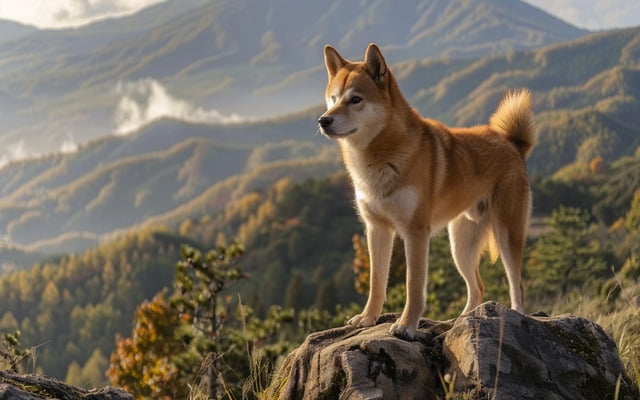
A Glimpse into the Shikoku Soul
But there’s more to the Shikoku than meets the eye. Beneath their primal exterior lies an intelligent and independent mind, a playful heart, and a deep-rooted connection to their human family. Whether you’re an experienced dog owner or a curious newcomer to the breed. Prepare to be captivated by the Shikoku unique blend of wild instincts and unwavering devotion.
In this comprehensive guide, we’ll delve into the fascinating world of the Shikoku dog. We’ll uncover their rich history, explore their complex temperament, and equip you with the knowledge you need to care for and cherish these extraordinary companions. Whether you’re dreaming of welcoming a Shikoku into your home or simply eager to learn more about this captivating breed, let’s embark on a journey to the heart of Shikoku.
History and Origin
A Breed Forged in the Mountains
The story of the Shikoku dog is as captivating as the rugged terrain from which it emerged. This breed isn’t a recent creation, it’s a living relic, with roots that intertwine with ancient Japanese history and culture. Imagine the misty peaks of Shikoku Island, where for centuries, these dogs thrived alongside the Matagi. Skilled hunters who relied on their canine companions to track and corner wild boar in the dense forests.
The Shikoku’s ancestors are believed to have accompanied migrating people to Japan as far back as 300 B.C. These dogs were not pampered pets but hardy working animals, bred for strength, endurance, and an unwavering hunting instinct. Over time, isolated populations of these dogs developed distinct characteristics, giving rise to the three Shikoku varieties we recognize today.
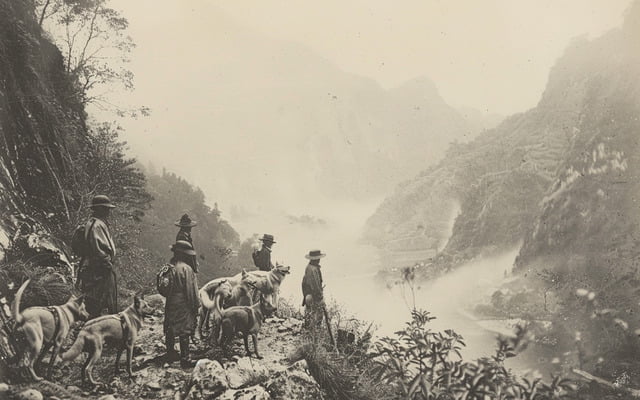
A Close Call with Extinction
The Shikoku dog’s journey hasn’t been without its challenges. During World War II, the breed faced near extinction as food shortages and the war effort took their toll. But like a phoenix rising from the ashes, the Shikoku persevered. Dedicated breeders and enthusiasts banded together to protect and revive the breed, ensuring that their unique legacy would endure.
The Modern Shikoku
Today, the Shikoku is recognized as a national treasure in Japan, a symbol of the country’s rich cultural heritage. In 1937, the breed was designated a “Natural Monument” by the Japanese government, a testament to its historical and cultural significance.
While Shikoku dogs are still relatively rare outside of Japan, their popularity is steadily growing. Their striking appearance, independent spirit, and unwavering loyalty are attracting dog lovers worldwide who seek a companion that embodies both the wild and the wonderful.
| Feature | Description |
| Country of Origin |
Japan (Shikoku Island)
|
| Original Purpose |
Hunting dog (wild boar)
|
| AKC Recognition |
Recognized in the Foundation Stock Service (FSS) since 2006. Not yet eligible for full AKC registration.
|
| UKC Recognition |
Recognized by the United Kennel Club (UKC) in the Northern Breed Group.
|
| Rare Breed Status |
Considered a rare breed, even in its native Japan.
|
Temperament and Personality
To truly understand the Shikoku dog, you must delve into the intricacies of their temperament, a captivating blend of loyalty, alertness, and an independent spirit that reflects their wild heritage. At their core, Shikoku are fiercely devoted to their families. They form deep bonds with their loved ones, often choosing a single person as their primary focus of affection. This loyalty isn’t just a fleeting emotion, it’s a lifelong commitment, etched into the very fabric of their being.
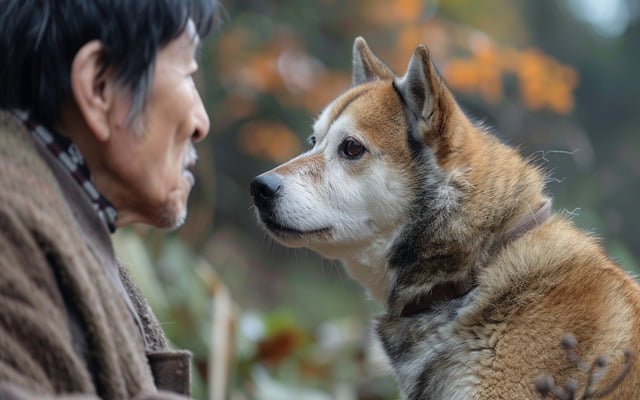
Alert Guardians and Keen Observers
Shikoku dogs are renowned for their alertness and vigilance. Their sharp senses and innate curiosity make them excellent watchdogs, always ready to sound the alarm if something seems amiss. But don’t mistake their alertness for aggression, Shikoku are not typically confrontational, but they will stand their ground to protect their loved ones if necessary.
The Independent Thinker
One of the most endearing aspects of the Shikoku’s personality is their independent streak. These dogs are not blindly obedient followers, they are intelligent thinkers who like to do things their way. This can make training a bit of a challenge, but it also means that your Shikoku will always keep you on your toes.
A Family Affair
While Shikoku can make wonderful family pets, it’s important to remember that they are high-energy dogs who need plenty of exercise and mental stimulation. They thrive in active households where they can participate in outdoor adventures and challenging activities. If you’re looking for a couch potato companion, the Shikoku may not be the right fit.
Is a Shikoku Right for You?
| Trait | Description | Ideal Owner |
| Loyalty | Deeply devoted to their family, often forming a strong bond with one person in particular. |
Someone seeking a loyal and affectionate companion.
|
| Alertness | Highly alert and vigilant, making excellent watchdogs. |
Someone who appreciates a dog that is aware of its surroundings and can alert them to danger.
|
| Independence | Intelligent and independent thinkers who may require patient and consistent training. |
Someone who is experienced with dogs and enjoys a challenge.
|
| Energy Level | High-energy dogs who need plenty of exercise and mental stimulation. |
An active individual or family who can provide ample opportunities for exercise and play.
|
| Trainability | Can be stubborn, but are intelligent and eager to please, making training possible with patience and positive reinforcement. |
Someone who is willing to invest time and effort in training.
|
Care and Training
Caring for a Shikoku dog is a rewarding experience, but it requires a deep understanding of their unique needs and instincts. These are not dogs that thrive in sedentary lifestyles, they crave adventure, activity, and mental stimulation. A bored Shikoku can quickly become a destructive one, so it’s essential to provide them with ample outlets for their boundless energy.
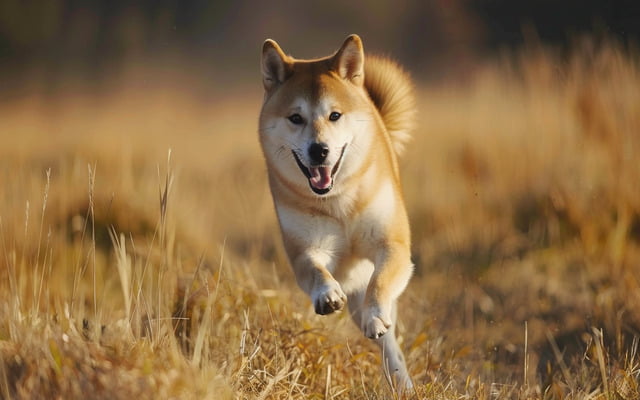
Fueling the Fire Within
Daily exercise is non-negotiable for a Shikoku. Whether it’s a long hike through the woods, a vigorous game of fetch, or a challenging agility course, these dogs need to move. Their strong prey drive and natural athleticism make them ideal candidates for canine sports like lure coursing and flyball. But even a simple walk around the neighborhood can do wonders for their physical and mental well-being. Remember, a tired Shikoku is a happy Shikoku.
Grooming: Taming the Mane
The Shikoku’s thick double coat is a testament to their resilience in harsh climates, but it does require regular maintenance. Brushing a few times a week helps to remove loose fur and prevent matting. During shedding season, you may need to brush more frequently to keep their coat looking its best.
Health: A Holistic Approach
Shikoku dogs are generally healthy, but like all breeds, they can be prone to certain health conditions. Regular veterinary checkups, a balanced diet, and preventative care are crucial for ensuring your Shikoku lives a long and happy life.
Shikoku Care Essentials
| Aspect |
Recommendation
|
| Exercise |
At least 1-2 hours of vigorous exercise per day, including walks, runs, hikes, and playtime.
|
| Grooming |
Brush 2-3 times per week, more frequently during shedding season.
|
| Diet |
A high-quality, balanced diet appropriate for their age and activity level. Consult your veterinarian for specific recommendations.
|
| Veterinary Care |
Regular checkups, vaccinations, and preventative care for parasites. Discuss any concerns about your Shikoku’s health with your veterinarian.
|
| Training |
Early socialization and consistent training using positive reinforcement methods are essential. Shikoku can be stubborn, so patience and persistence are key.
|
| Enrichment |
Provide plenty of mental stimulation, such as puzzle toys, interactive games, and training exercises. This helps prevent boredom and destructive behaviors.
|
Health and Lifespan
Shikoku dogs are renowned for their robust health and resilience. Bred for generations to endure the harsh conditions of their mountainous homeland, these dogs typically enjoy long, active lives. However, like all breeds, they can be predisposed to certain health conditions that responsible owners should be aware of.
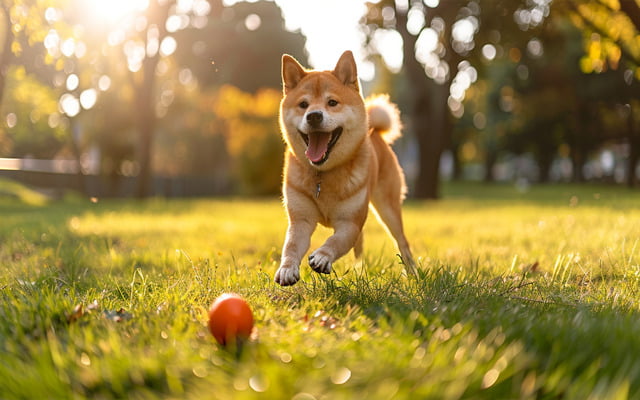
Common Health Concerns
While Shikoku are generally healthy dogs, a few health issues have been reported within the breed. These include:
- Hip Dysplasia: A common orthopedic condition where the hip joint doesn’t develop properly, leading to pain and mobility issues. Responsible breeders screen for hip dysplasia in breeding dogs.
- Allergies: Shikoku can be prone to allergies, which can manifest as skin irritations, itching, and gastrointestinal problems.
- Eye Problems: Some Shikoku may develop eye problems such as progressive retinal atrophy (PRA) or cataracts. Regular eye exams can help detect these issues early on.
Lifespan: A Decade of Devotion
With proper care, nutrition, and regular veterinary checkups, Shikoku dogs can live long, fulfilling lives. The average lifespan of a Shikoku is typically 10-12 years, although some individuals may live well into their teens. Their longevity is a testament to their hardy nature and overall good health.
Preventive Care: A Proactive Approach
The best way to ensure your Shikoku enjoys a long and healthy life is to take a proactive approach to their healthcare. This includes:
- Regular Veterinary Checkups: Schedule regular checkups with your veterinarian to monitor your Shikoku’s health, address any concerns, and receive necessary vaccinations.
- Balanced Diet: Feed your Shikoku a high-quality, balanced diet appropriate for their age and activity level. Avoid overfeeding, as obesity can contribute to various health problems.
- Exercise: Ensure your Shikoku gets plenty of exercise to maintain a healthy weight and promote overall well-being.
- Dental Care: Brush your Shikoku’s teeth regularly to prevent dental disease, which can lead to other health complications.
A Lifetime of Loyalty and Love
By understanding and addressing the potential health concerns of the Shikoku breed and taking a proactive approach to their care. You can ensure that your beloved companion enjoys a long, happy, and healthy life by your side. Their unwavering loyalty and unwavering spirit will reward you with a lifetime of love and companionship.
Conclusion
In the grand tapestry of dog breeds, the Shikoku is a unique and vibrant thread, weaving together a rich history, a captivating temperament, and a spirit that embodies both the wild and the wonderful. Whether you’re drawn to their wolf-like appearance, their unwavering loyalty, or their independent nature, the Shikoku is a breed that leaves a lasting impression.
They are not for everyone, as their high energy levels and independent streak require a dedicated and experienced owner. But for those who are willing to embrace their unique qualities, the Shikoku offers a rewarding and enriching companionship.
FAQs
Are Shikoku dogs good with children and other pets?
This is a common concern for families and multi-pet households. While Shikoku can be loyal and affectionate, their independent nature and high energy may not always be a good fit for small children. Early socialization is crucial for peaceful cohabitation with other pets.
What are the challenges of owning a Shikoku dog?
This question provides a realistic perspective beyond the positive traits. Challenges can include their strong-willed nature, high exercise needs, potential dog reactivity, and relative rarity, which may make finding resources or support more difficult.
How do Shikoku dogs compare to other Japanese dog breeds like Siberian Husky or Shiba Inus?
This caters to those researching various Japanese breeds. Shikoku share some similarities with Siberian Husky and Shibas, but they are generally more energetic and have a stronger prey drive.
Do Shikoku dogs have any specific grooming needs due to their coat?
This practical question is relevant to potential owners. Shikoku have a thick double coat that sheds moderately. Regular brushing is necessary, especially during shedding season, to prevent matting and keep their coat healthy.
Can Shikoku dogs adapt to living in apartments or smaller spaces?
This question addresses the concern of living space. While Shikoku can adapt to apartment living, it is crucial to provide them with sufficient exercise and mental stimulation to prevent boredom and destructive behavior.

I could talk about dog breeds all day! My goal is to help you find the four-legged friend who fits your life like a perfectly worn-in tennis ball fits in a dog’s mouth.

